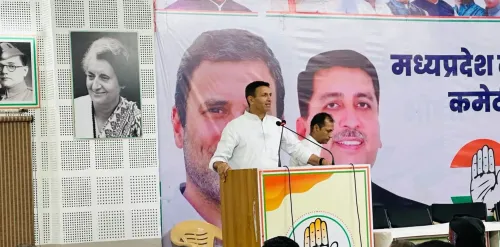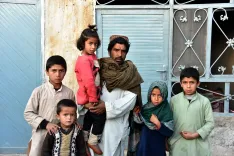Why Did the U'khand Cabinet Pass a Bill Granting Minority Status to Non-Muslim Educational Institutions?

Synopsis
Key Takeaways
- Minority status benefits expanded to include non-Muslim communities.
- Transparent process for recognizing educational institutions established.
- Repeal of the Uttarakhand Madrasa Education Board Act set for July 1, 2026.
- Inclusion of Gurmukhi and Pali in curricula of recognized institutions.
- Criticism from Muslim leaders highlighting potential bias.
Lucknow, Aug 18 (NationPress) The Uttarakhand Cabinet has given the green light to the Uttarakhand Minority Educational Institutions Bill, 2025, which aims to extend minority status benefits not only to the Muslim community but also to Sikhs, Jains, Christians, Buddhists, and Parsis. This decision has faced backlash from various groups, including Maulana Sufiyan Nizami, who openly criticized the initiative on Monday.
The Bill is set to be presented during the upcoming Legislative Assembly session starting on August 19 and aims to create a clear framework for acknowledging minority educational institutions.
Additionally, it seeks to maintain educational standards and protect the rights of minority communities.
Importantly, the Uttarakhand Madrasa Education Board Act, 2016, along with the Uttarakhand Non-Government Arabic and Persian Madrasa Recognition Rules, 2019, will be repealed starting from July 1, 2026, meaning there will no longer be a separate education board or recognition system for madrasas in the state.
Media reports suggest that a governing body will be established under the new law, consolidating all minority educational institutions under one regulatory framework.
Previously, minority educational institution status was exclusively given to the Muslim community. The new legislation aims to expand this acknowledgment to other constitutionally recognized minorities.
An official announcement indicated that once enacted, the law will also allow the teaching of Gurmukhi and Pali in recognized minority institutions, in addition to existing curricula.
The government has hailed this as a historic move, describing it as the first of its kind in the nation aimed at fostering transparency and educational excellence for all minority groups.
In an interview with IANS, Maulana Sufiyan Nizami criticized the Bill, asserting: “The treatment of Muslims in Uttarakhand is evident. The government continues to show its partiality. Discrimination based on religion is against the Constitution.”
He further remarked, “While our central government promotes the Madrasa Modernisation Scheme, claiming to uplift Muslims by equipping them with a Quran in one hand and a laptop in the other, Uttarakhand's decision to dismantle the Madrasa Board reveals the true intentions of the state government towards Muslims. I urge Prime Minister Narendra Modi to take notice of this situation.”









